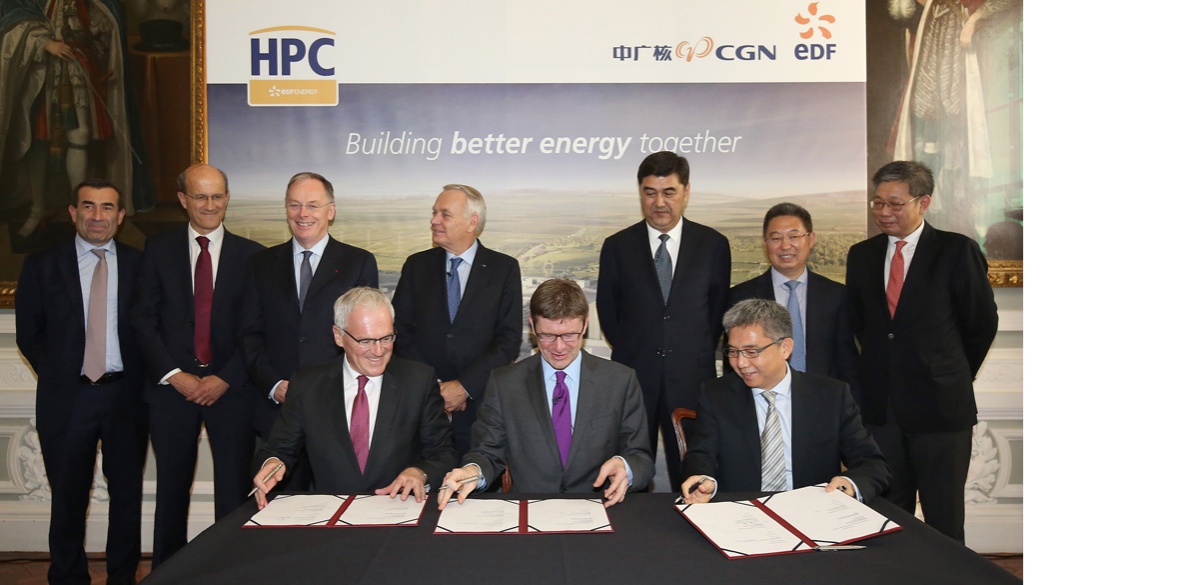This is the last article you can read this month
You can read more article this month
You can read more articles this month
Sorry your limit is up for this month
Reset on:
Please help support the Morning Star by subscribing here
WILL the new nuclear power stations being built in Britain get the right safety checks and at what price? Already very expensive, ensuring that they meet the highest safety standards risks increasing their costs way over any reasonable charge for electricity.
EDF, the French energy giant building Britain's first new nuclear power station in 20 years, have found one solution. They have hired Britain’s chief nuclear inspector and he now works for the firm building the new Hinkley Point power station, in what Greenpeace has called a “gamekeepers-turned-poachers” affair.
Dr Richard Savage was chief nuclear inspector until last year. But, in a surprise move, last September the Office of the Nuclear Regulator announced that after two years in post Savage was stepping down “for family reasons.” However, according to documents recently released under government “transparency” rules, in February 2018 Dr Savage was appointed Safety and Assurance Director at EDF Energy.
Because the chief nuclear inspector is a director-level and sensitive job, Dr Savage had to ask for approval from the government before he accepted the EDF post. In this case, The Department for Work and Pensions, which runs health and safety regulation, is in charge of the “revolving door” rules supposed to police civil servants being too easily poached by the industries they regulate.
The department said that it is “content to approve” Dr Savage’s new EDF job.
It also said that he must wait seven months before assuming the full duties of his role with the company. Savage stopped being nuclear regulator last November but EDF found a way round this ruling. They hired him in February but gave him other work until he finally took up his full “safety assurance” job this June. By giving him such a long “induction,” EDF showed that they really wanted Dr Savage on their side.
Unsurprisingly, EDF says that Savage’s new job is all about Hinkley Point, the new nuclear power station building on the Somerset coast: “Dr Savage is ideally placed to help ensure that the Hinkley Point C project has robust quality, safety and oversight arrangements to deliver this vital part of the UK’s future energy infrastructure,” the company stated.
But Dr Savage’s old employer, the Office of the Nuclear Regulator, has clashed with EDF over safety standards at Hinkley Point C. In 2016, inspectors from Britain's Office of the Nuclear Regulator joined other international nuclear inspectors to examine the Creusot Forge, a French steel foundry run by another nuclear company, Areva, that makes some of the most important parts for Hinkley and other nuclear plants.
The inspectors visited the plant because French regulators had found falsification of safety-critical reports at the forge. The new inspection also found reports had been altered and that staff were using Tipp-Ex on records, even though this was banned because of the problems with doctored paperwork.
A report released under Freedom of Information showed that Britain's nuclear regulator was worried about the way EDF was supervising work at the site. EDF has on-site inspectors at the forge but they had not picked up issues like the use of Tipp-Ex.
The report, dated December 2016 — and completed by Dr Savage’s team — said that the Office for the Nuclear Regulator “should consider the adequacy” of EDF’s “oversight and assurance arrangements” of “Areva as a key supplier to Hinkley Point, given the performance shortfalls at Creusot Forge and the associated risks to [nuclear] components manufacture.”
This March, Mark Foy, the chief inspector who replaced Dr Savage, questioned safety issues at EDF, issuing an “amber” alert in a report on Hinkley because “further work is required to ensure that adequate quality management system arrangements are consistently embedded across the wider Hinkley Point C project.” The inspector was referring to the problems at the Creusot Forge and EDF’s failure to spot them, as well as other issues in the Hinkley build.
If EDF’s solution to getting an amber alert from Britain's independent safety regulators is to hire one of those regulators, that is not a good sign. EDF is in the business of building nuclear power stations, so it should have its own staff who are capable of meeting safety rules.
The fact that it is instead hiring government inspectors looks too much like it is trying to buy the goodwill of the regulators, to buy inside knowledge and make an implicit promise to any regulatory staff that — as long as the nuclear industry is making big profits — they can count on a future job with them.
Hinkley Point C already looks like a bad deal financially. Last year, spending watchdog the National Audit Office called it “risky and high cost.” The government gave EDF a guaranteed price of £92.50 per megawatt-hour of electricity for 35 years — much more expensive than current renewable energy prices.
The strong focus on safety issues has increased since the 2011 nuclear disaster at Fukushima in Japan. But hiring the old chief nuclear inspector looks more like the kind of cronyism found elsewhere in the nuclear industry.
As Dr Doug Parr, chief scientist for Greenpeace UK, says: “The ongoing mystery of why a supposedly pro-market government wants to hand over billions of taxpayers’ money to bail out a failed technology which cannot compete with renewables is still a long way from being solved.
“But it’s difficult to have much faith that bad policy will be subject to the proper checks and balances when so many of the gamekeepers turn out to be apprentice poachers.”











